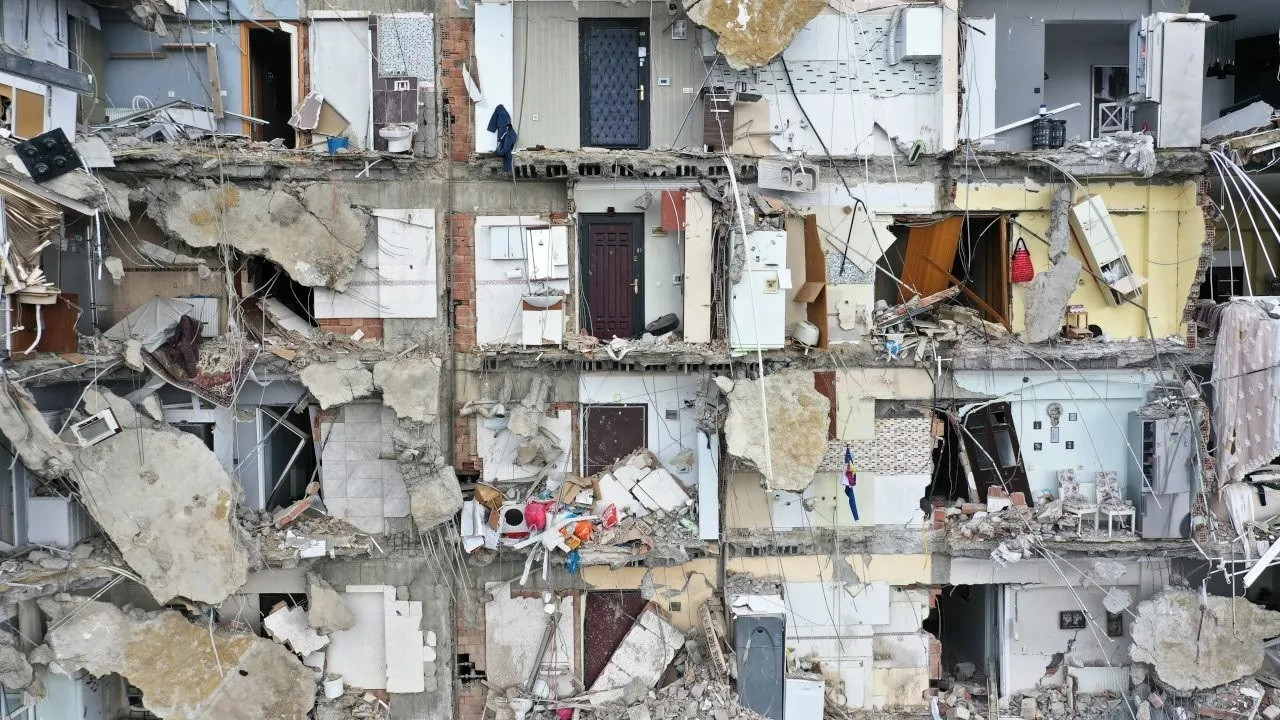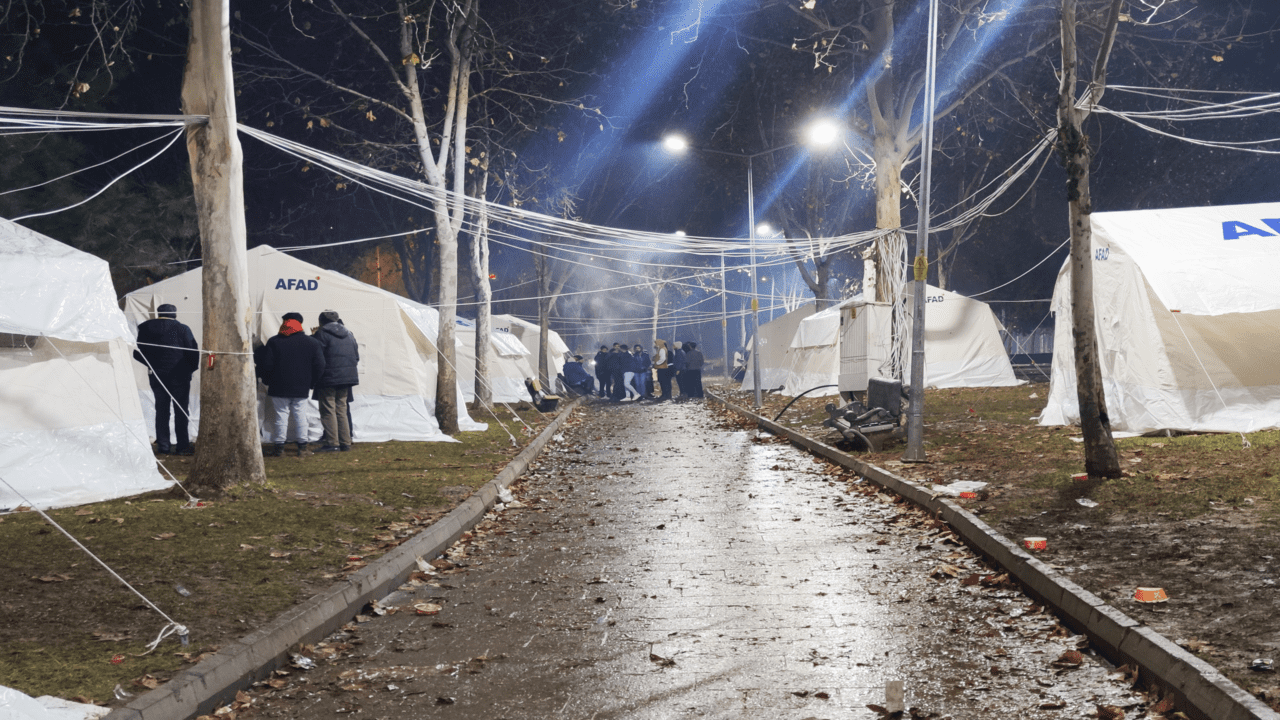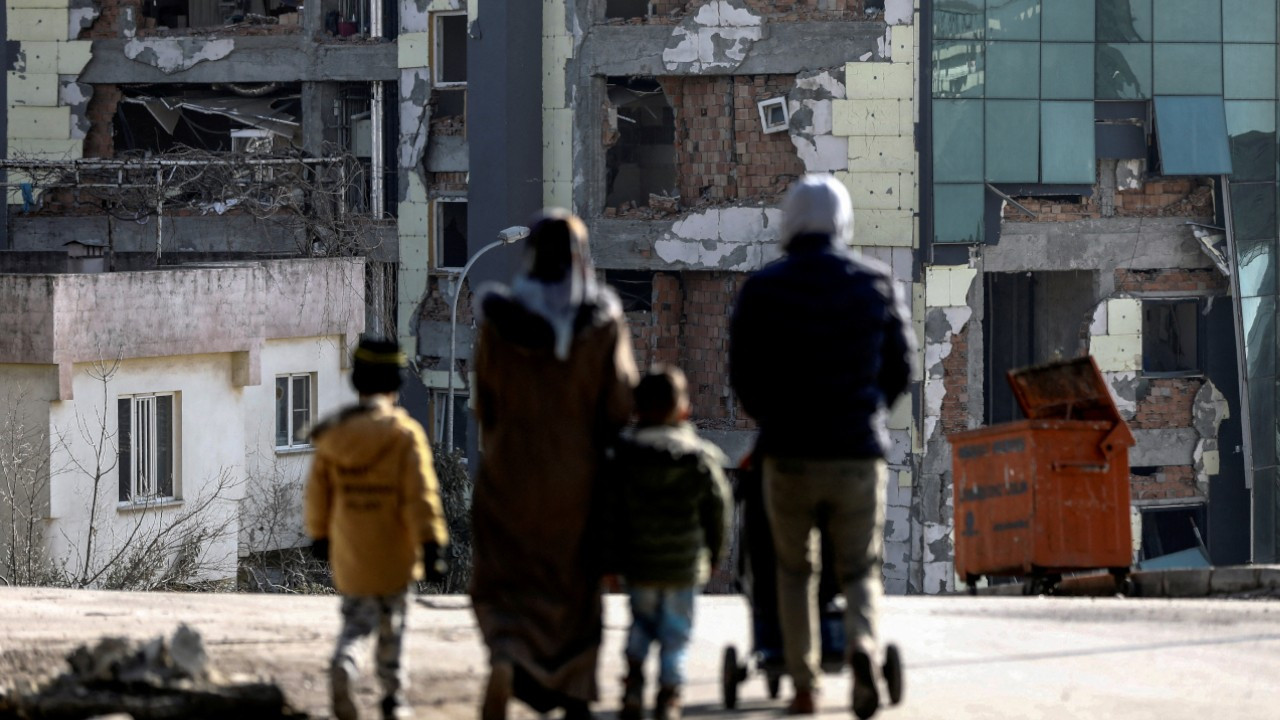Collapsed buildings might release asbestos into environment in quake-hit provinces, expert warns
Prof. Barış Çallı, from the Marmara University Environmental Engineering Department, has drawn attention to the post-earthquake waste management, saying collapsed buildings might have released asbestos into the environment. Çallı said asbestos was used for thermal insulation in buildings until the 1980s.
Duvar English
Experts have drawn attention to the post-earthquake waste management in 11 quake-stricken provinces, while works still continue to remove the rubble.
Prof. Barış Çallı, from the Marmara University Environmental Engineering Department, has indicated that those provinces face several problems, from infrastructure to epidemics, state-run Anadolu Agency reported on Feb. 17.
Çallı warned against epidemics as the sewage system was damaged in the Feb. 6 quakes, saying human waste that threatens health should be properly treated and disposed of. “We should not forget that there is a dense population in the region. The garbage will pose serious threats to public health as a result of the warming of the weather,” he said.
“Asbestos is a material used extensively for thermal insulation, especially until the 1980s. Collapsed buildings might have released asbestos into the environment,” Çallı stated, emphasizing on careful removal work as breathing asbestos might cause lung cancer.
Çallı added that it is obligatory for those who work in rescue efforts to wear protective equipment as serious waste will also emerge as a result of the demolition of heavily and moderately damaged buildings, leading to further asbestos release into the environment.
“It is very important to find the citizens who lost their lives under the rubble. After that, demolition wastes should be gradually removed from the sites. We are facing a risk of an earthquake disaster turning into an environmental disaster,” Çallı said.
“The rubble should be transported not to wetlands, forests, water resources and natural protection areas, but to areas that are inefficient, not used in agriculture and are not frequented by animals,” he added.
Çallı lastly drew attention to garbage disposal in quake-stricken provinces and said "The collection and proper disposal of garbage in temporary shelters or container cities should continue as in the pre-disaster period.”

 50,576 buildings need to be demolished urgently in quake-hit provinces, minister saysDomestic
50,576 buildings need to be demolished urgently in quake-hit provinces, minister saysDomestic Experts point to growing risk of epidemics in earthquake zonesHealth
Experts point to growing risk of epidemics in earthquake zonesHealth Shopkeepers in quake-stricken Kahramanmaraş: ‘Nothing will be the same as before’Domestic
Shopkeepers in quake-stricken Kahramanmaraş: ‘Nothing will be the same as before’Domestic